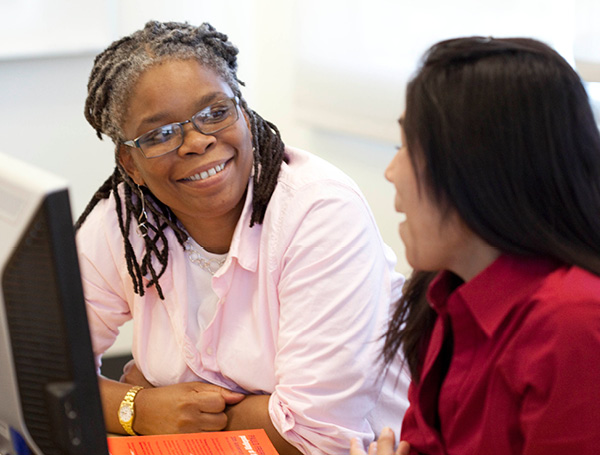
Fieldwork outside clinical comfort zones
Graduate students at the Betty Irene Moore School of Nursing focus on meeting today’s health challenges, in and out of clinical settings. So faculty embed students within community organizations to create pathways to change beyond the bedside.
The Community Connections course pairs master’s-degree leadership students with local and regional organizations to address real-world issues. Unlike many other nursing fieldwork courses, Community Connections challenges students to think outside of the box.
“This course requires students to take risks, to break out of comfort zones,” says Deborah Ward, lead instructor for the course. “For some students, the topic is not within their expertise, and that’s OK, because we want them to forge partnerships with those who are the experts and learn how to facilitate change.”
Students serve as consultants and utilize the expertise within organizations — such as the Sacramento Food Bank & Family Services, the Veterans Affairs Northern California Health Care System, Yolo Hospice or Mutual Housing California — to design and complete a project which addresses a community health issue. To enhance the fieldwork experience, students participate in weekly seminars that examine issues including organizational development and the varied means of financing health care systems.
“Students work within a critical service-learning framework and experience interdisciplinary approaches, collaborate on best practices, foster respect for socioeconomic diversity and practice cultural humility,” explains Jann Murray-Garcia, an assistant adjunct professor and course co-instructor.
Community Connections culminates each spring with a research poster presentation for students to showcase their process and findings for their mentors and the community at large.

